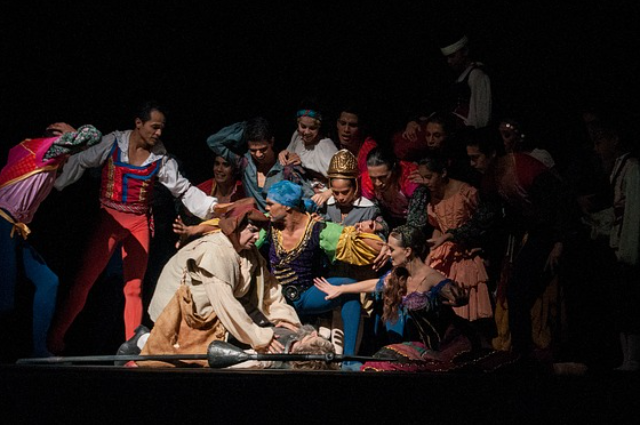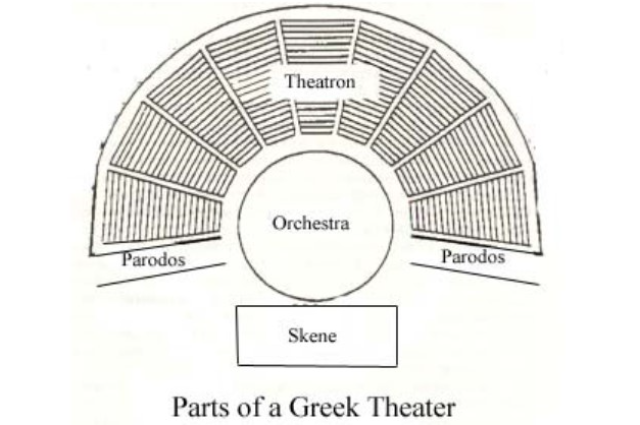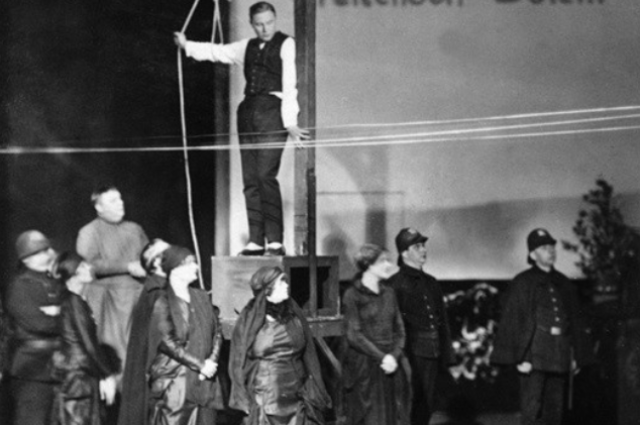
Since, ancient times humans have engaged in Art in various forms such as dance, painting, music, drama, or literature. Human nature has evolved through centuries, and so has their behavior, living styles, and opinions about each other. One thing that never changed is the instinct to gather stories and their shared experiences with each other in the form of storytelling. Oral culture has been among the most popular cultures in the form of storytelling when humans were not acquainted with writing. The tradition of oral culture somehow gave rise to Theatre.
The exact origin of Theatre is still unknown but Theatre has always been there as one of the most popular art forms of sharing stories among audiences. As the audiences evolved, theatre evolved too. Centuries ago, during the times of ancient Greeks and Romans theatre was performed in open-air amphitheaters. Greek theatre introduced the world to Tragedies. Tragedy dominated the ancient Greek and Roman drama. The first Greek tragedy was staged in the festival The City Dionysia. The plays were attended by huge audiences and subjects of the plays were catastrophic downfall of the heroes, Greek mythology and history. Aeschylus (525-466 BCE), Sophocles (496-406 BCE) and Euripides (c. 480-406 BCE) were greatest Greek dramatists. ‘Oedipus The King’ by Sophocles, ‘Medea’ by Euripides were among the most popular plays. Later on, Greek tragedies led to the rise of Aristotelian theatre/ dramatic theatre. Aristotle, a Greek philosopher laid down the rules for the construction of tragedy. According to him, a true tragedy should arouse catharsis, that is, a feeling of pity and fear among the audience.

But, as time went on, coming playwrights and poets focused more on Aristotle’s rules instead of plays. Hence, neglecting the circumstances and scenarios of the characters. Therefore, killing the essence of theatre.
During the 16th-century tragedy, genre reached other parts of the world including England. Christopher Marlowe, Shakespeare were the most popular dramatist in England. Shakespeare brought his own genre of comedy. ‘Twelfth Night’, ‘As You Like It’, ‘The Comedy of Errors’ were some of his comedies. Whereas, his tragedies were highly critically acclaimed and popular during his time such as ‘Romeo and Juliet’, ‘Othello’, ‘Julius Caesar’; Shakespeare achieved great success during Victorian era and his plays became highly commercial. Therefore, making London a theatre capital. With emerging technologies and developments, Theatre witnessed significant changes. In the contemporary times it has taken various forms and styles such as musicals, opera, epic theatre, absurd theatre and so on.
Theatre is an art of not just story telling or not just a source of entertainment but also about raising awareness among the spectators for a positive change and wake up the audience by providing a deeper vision of reality. Thus, exposing them to the real social and political issues of the society.
During the nineteenth and twentieth century Epic theatre and Absurd theatre were among the most popular forms of theatre. With their epic style and satirical comedy, they brought Infront the issues that were never discussed openly such as capitalism, infidelity, politics, corruption and so on. Bertolt Brecht, a German playwright introduced the world to epic theatre that led to a major form of theatrical movement. This form of theatre majorly created political dramas. Brechtian theatre is considered to be the opposite of dramatic theatre, Aristotelian theatre and Shakespeare theatre.
Epic theatre used Alienation Effect as its tool that distinguished his form of theatre from other forms. Alienation effect alienated the spectators from feeling of catharsis so that they can think rationally instead of sympathizing with the characters. Apart from the alienation effect what distinguished epic theatre from other forms was, Brecht’s usage of songs and humor. In 1928, Bertolt Brecht’s play ‘The Three Penny Opera’ became a great success in spite of the initial poor reception. The play was based on criminal underclass. Brecht contradicted Shakespeare’s and Aristotle’s idea of theatre. His theatre was supposed to be Marxist drama. Soon, this took form of modern theatre.

Source: bl.uk
Realism and Naturalism became important aspects of theatre. The modern theatre worked on “truthfulness”; the younger generation wanted relatability with what they see. Actors were expected to perform in the most realistic way. With the usage of newest technologies and lightening systems, plays were not less than depiction of real-life scenarios.
Today, even though, performers and composers keep on experimenting theatre with music, dance, art but realism continues to overpower everything. Today’s audience wants to see the reality and with self-expression, theatre continues to help society by bringing Infront diverse voices and unheard stories from different parts of the world.
